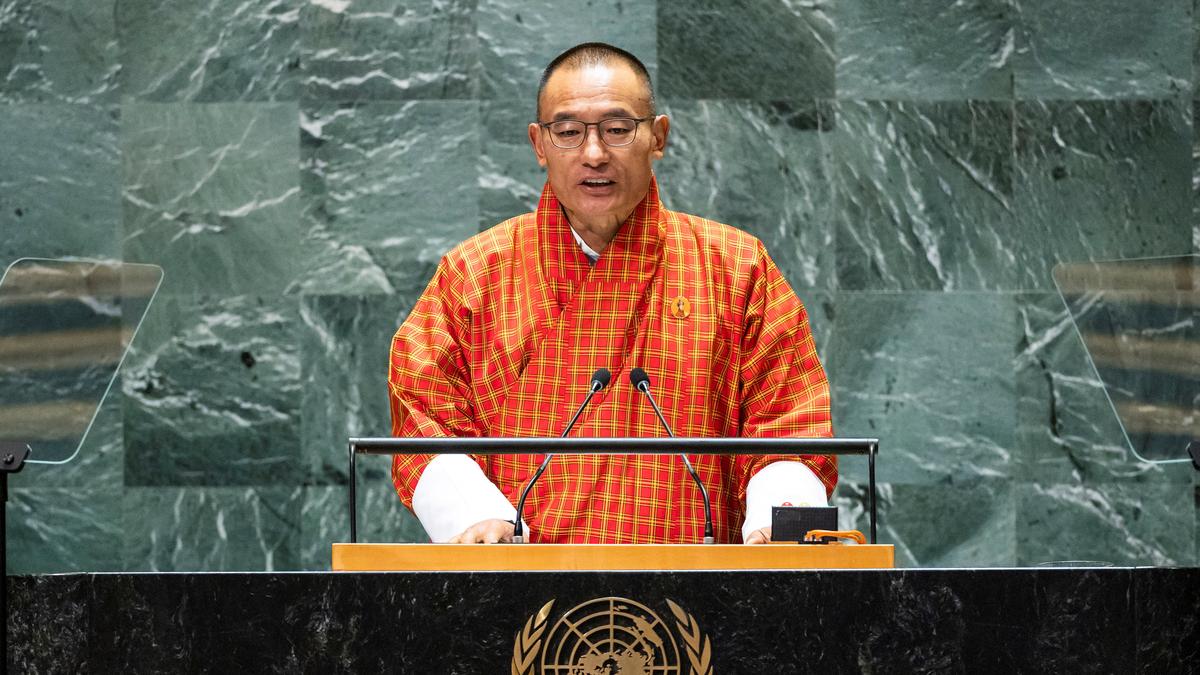INDIA DESERVES PERMANENT UNSC SEAT: BHUTAN

- 30 Sep 2024
In News:
With its significant economic growth and leadership of the Global South, India deserves a permanent seat at the UN Security Council, says Bhutan’s Prime Minister Tshering Tobgay.
Key Highlights:
- Economic Growth: Highlights India’s significant economic growth and its leadership in the Global South as justifications for this status.
- International Backing: India’s bid gains momentum with support from several UN Member States, including France, the UK, and the U.S.
- Need for Reform: Bhutan emphasized that the UNSC is outdated and must evolve to reflect contemporary geopolitical and economic realities.
- Advocacy for Representation: Bhutan has long called for a more representative and effective Security Council, backing India’s inclusion at the high table.
About UN Security Council (UNSC)
- Composition: Total of 15 member states.
- 5 permanent members (P5): China, France, Russia, the United Kingdom, and the United States (with veto rights).
- 10 non-permanent members elected for two-year terms.
- Election of Non-Permanent Members:
- Elected on a regional basis:
- 5 seats for African and Asian states.
- 2 seats for Latin American and Caribbean states.
- 1 seat for Eastern European states.
- 2 seats for Western European and other states.
- Elected on a regional basis:
- Presidency:
- Rotates monthly among members, following the English alphabetical order of country names.
- Primary Functions:
- Maintain international peace and security.
- Investigate and resolve disputes.
- Impose sanctions and authorize the use of force.
- Establish peacekeeping missions.
- Make recommendations to member states.
- Meeting Schedule:
- Regular meetings at UN headquarters in New York.
- Can convene at any time in response to emergencies.
- Decision-Making:
- Requires affirmative votes from at least 9 of the 15 members.
- Any of the P5 can veto resolutions, raising concerns about the Council's effectiveness.
- Subsidiary Bodies:
- Includes committees, working groups, and sanctions committees focused on specific issues like counter-terrorism, nuclear non-proliferation, and peacekeeping operations.
- Reforming the UN Security Council (UNSC)
- Charter Amendments:
- Reforming the UNSC requires amendments to the UN Charter.
- Voting Requirements:
- An amendment must be adopted by a two-thirds majority of the General Assembly.
- It must also be ratified by two-thirds of UN member states, including all permanent members of the UNSC.
- Charter Amendments:
